The Era of Healthcare Digitalization
Healthcare ecosystem – providers, device manufacturers, payers, etc. – have been relying on technology for a long time. In fact, technology has been incorporated in the health and care domain so much so that clinics and patients are already using them to track patient information, schedule payment, and launch new care options. While on the other hand, patients have started taking benefits of digital health ecosystem for self-assessment and health monitoring.
Even though through healthcare application development, the domain has grown to accept the incorporation of technology in their processes, the digitalization game is also constantly changing. The era of healthcare consumerism is not making things easier as well. The once passive patients have now come on the forefront and are taking control of who they want to be served from on how.
To match this “customer experience” frame of mind, healthcare app developers have started seeking ways to integrate digitalization and the technologies which make them possible at the center of their existing business models and IT architecture.
In this article, we will deep dive into the changing healthcare ecosystem and how to avail benefits of digital healthcare in healthcare in an actionable way. We will start by looking at the process of building a roadmap of digital healthcare, the trends which are defining this movement, and the risks associated with the complete digitalization in healthcare.
What is Digital Transformation in Healthcare?
It is the positive impact of technology in healthcare. It implies that diverse technological tools and solutions are utilized to improve the patient experience, administration, service, make new business models, and make communication more effective. Apart from technology it is also about how and for what reason it can be executed to help the medical care field develop and elevate.
Few examples of digitalization in the healthcare sector are: Telemedicine, AI empowered medical devices, and blockchain electronic health records are just a few. These technologies totally reshape how we communicate with health experts, how our information is divided between suppliers and how choices are made about our treatment plans and health results.
Digital transformation mostly focuses on the development here, with the fundamental objective of streamlining doctors’ work, enhancing systems, improving patient results, reducing human mistakes, and bringing down costs through astounding web and mobile experiences.
Why is Digital Transformation in Healthcare Important?
The achievements accomplished by medical care have been exceptional. Supposedly if you turn back to decades ago and remember, then you will note that EMR or Electronic Medical Records were having a tremendous effect at that point. Presently EMRs have become so ordinary that individuals don’t think twice about it. Afterwards came telemedicine, IoT, wearables, robots – and so on, the current health system utilizes these technologies.
The thought is to make the patient become dynamic partners in their own health plan. Consequently they are aware of the progressions in their own health, screen essential signs, know about what they ought to do to lead quality life, and figure out how to take preventive measures against chronic illness. Truth be told, it permits the patient to turn into a responsible individual in the issue of their own health. Furthermore, this is done through patient engagement in most recent innovations.
The Five-Step Process For Innovation In Healthcare Industry
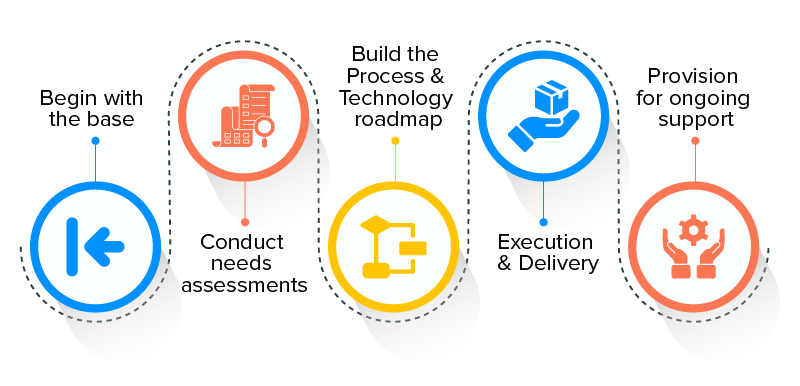
- Begin with the base – Look into what you already have, which includes the existing legacy systems, patient engagement tools, real-time location system, EHR, and telemetry, etc. Once you have the information, look into what is working with you and what could be improved.
- Conduct needs assessments – Once you have all the information, involve the design team in prioritizing department wish lists within budget. Next, think about the metrics – HCAHPS scores, ROI, patient and staff safety satisfaction. Lastly, determine how to use technologies for achieving those key performance indicators.
- Build the Process & Technology roadmap – Start with working on the design of the process and tech mapping for determining what can be solved with a process, what needs to be incorporated into a technology. Then, move with an integrated delivery method, where you clarify the important questions like who would own the project and who would take responsibility for the integration.
- Execution & Delivery – It is important to be associated with a Healthcare app development company that is conscious of all the little details, keep projects on track, move towards the fulfillment of a vision, and ensure that the KPIs are met. The agency must know the workarounds of all the present and foreseeable issues.
- Provision for ongoing support – The fifth point to ensure smooth digitalization of healthcare is having a provision to back ongoing support. Your partnered healthcare mobile app development company should leave you with an architecture and knowledge that would help you cross the digitalization roadblocks.
Driven by these healthcare and digital transformation adoption processes, there are some trends that have come on the surface – ones which are set to mark how the healthcare industry trends also shape up in the coming time.
But before we move towards them, there’s one part of the process which healthcare agencies like us prepare you to never face – The risks of digital innovation in healthcare.
Digital Transformation Challenges in Healthcare
- Data privacy – with the industry moving towards collaborative care, the risks associated with patient data are now more significant than before. Without enough data privacy controls, the risk of data loss will continue to haunt the patient care industry by great measures.
- Distributed workforce – the onset of telemedicine technology trends has made the healthcare domain extremely dynamic and distributed. This necessary shift in digital health strategies can lead to the risk of improper worker authentication and access. The situation can get all the more worse when you have no architecture in place to connect the healthcare providers and their distributed patients.
If you are new at this, we understand how daunting it can be to keep up with the digital healthcare trends.
Deciding on the emerging healthcare technologies worth investing in and then getting the team onboarded is hard, especially because this need and rise of digitalization has not been brought upon by any one technology. AI enabled medical processes and devices, Telemedicine, Blockchain integration in EHR, 5G adoption, and Wearable in healthcare have all together been driving the trend forward.
How Will Digital Technology Help the Health Sector?
Technology and innovation are viewed as the main force behind improvements in healthcare services and, when you take a look at the pace of change and recent developments, many think that it’s hard not to agree with that perception.
Digital technology has become an essential piece of medical services and a future of digital healthcare that is good to go to revolutionize the practice of medicine. It has incredibly improved operational effectiveness with respect to the guidelines of medical consideration. The change has fundamentally improved the general overall experience of both medical services experts and patients.
Below mentioned are some of the healthcare digital transformation trends that have come into existence with the advent of the greater technology adoption by digital health startups and the will to change the health sector.
Trends of digital transformation in healthcare industry
1. Rise in on-demand healthcare
The healthcare mobile app development domain is entering the digital innovation era as their patients have started seeking on-demand healthcare, driven by the convenience of their smartphones. And this trend is not just user centric. Brands like Nomad Health are also making it easy for the physicians to offer on-demand healthcare services to clients according to their expertise and availability.
2. Greater inclusion of big data in healthcare
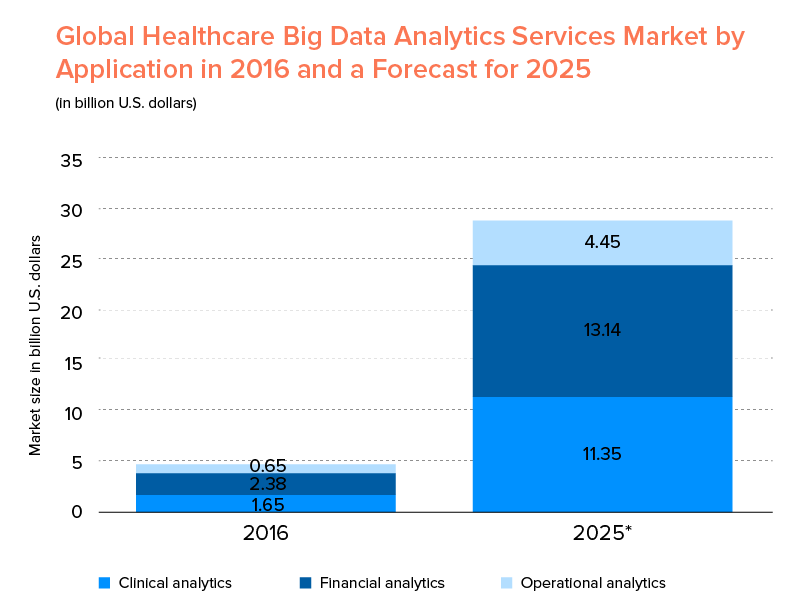
On an average, the global healthcare industry works around millions of data every hour.Digital healthcare market is set to grow rapidly using big data. Big data, with its power to convert unstructured and structured data into meaningful results can offer a plethora of benefits like:
- Lesser rate of medication errors – a big data powered software can flag out the inconsistencies between a patient’s health and the prescriptions made out to them. They can then alert the health professionals and patients when there’s a scope of medication error.
- Accurate staffing – through predictive analysis, big data can get hospitals information around the estimated admission rate. This in turn, can help the facilities with allocation of staff necessary to deal with the patients.
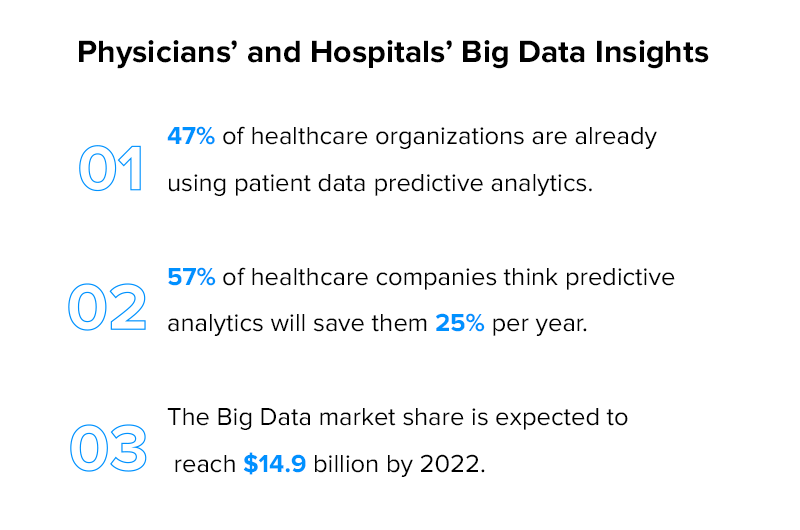
3. Virtual-Reality based treatment
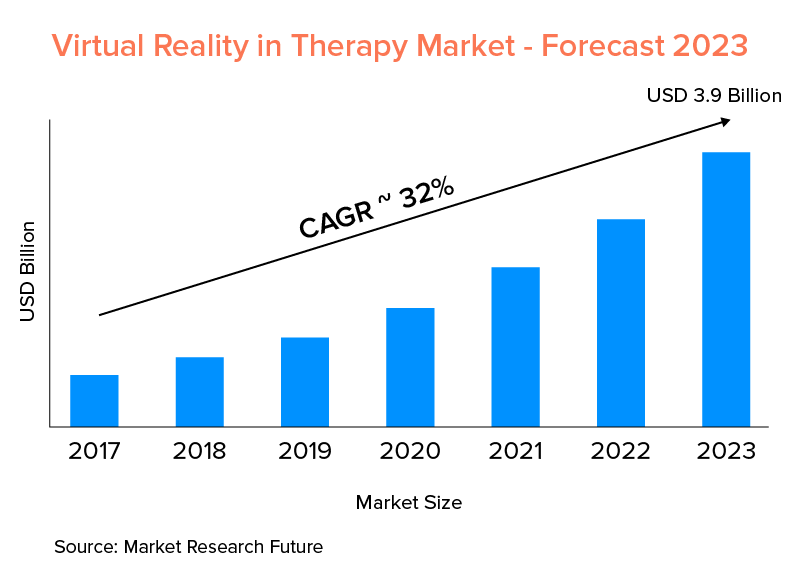
Virtual reality has grown to become a very inherent part of the digital healthcare ecosystem. In countries which have been struggling with the perils of drug crisis, Virtual Reality has been deemed successful in treating people with chronic pain. In fact, it is not just the chronic pain, the technology is also being used to treat PTSD, stress, and stroke.
In fact, residents and doctors have also become habitual to using VR simulations for honing their skills or planning for complicated surgeries. From doctors to pharma, everybody is betting on the healthcare domain. This is one of the reasons why the global AR/VR market is poised to reach $5.1 Billion by 2025.
4. Increase in Cloud Migration
There are n number of healthcare companies which have learned to accept the SaaS solutions in the digital health ecosystem and are even migrating the enterprise workload to cloud. Industry’s CIOs have gotten extremely bullish on cloud and have started migrating their enterprise workload to the cloud.
5. Voice Recognition Would Make Significant Gains
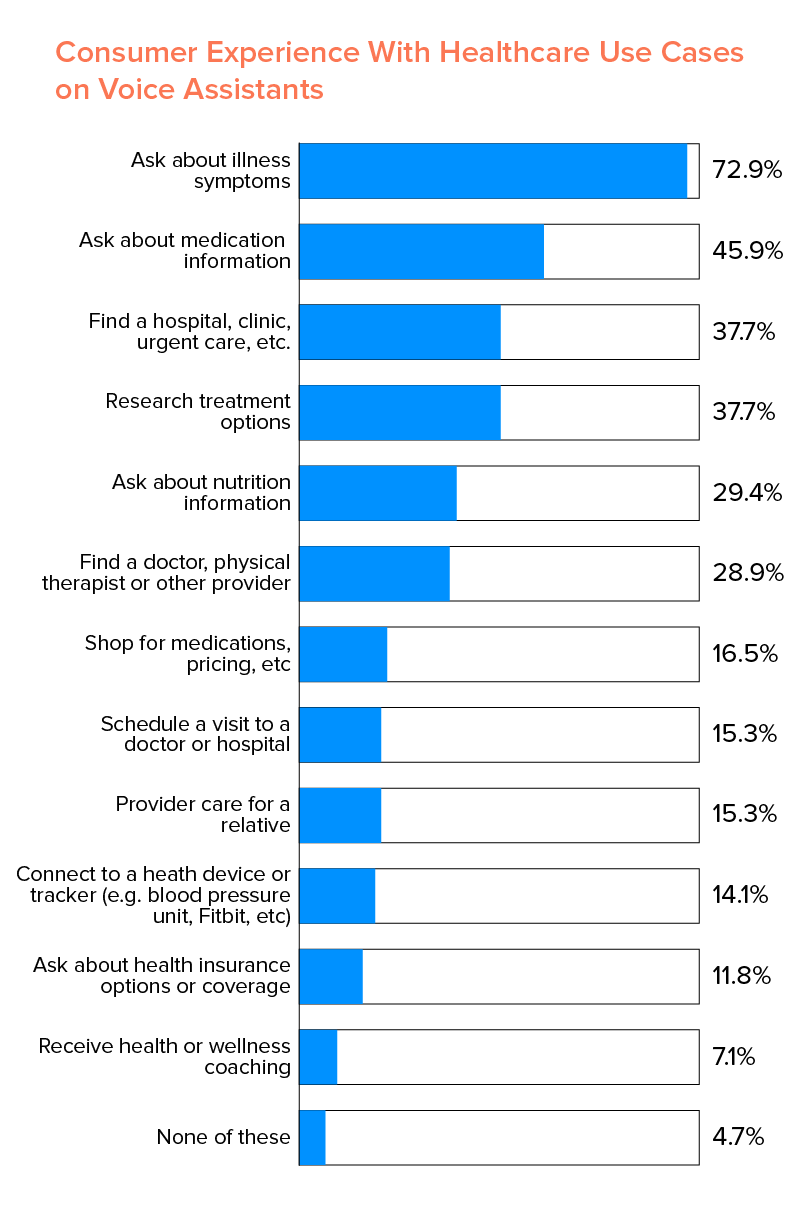
All the technologies which are directed at reducing the physicians’ workload are bound to get their share of attention today and in the coming years. Voice technology is one of those healthcare software development technologies. It has the capability of easing the physicians workload by taking care of the mundane administrative tasks.
Both Microsoft and Amazon have been making substantial progress in the voice technology domain. The former has gone into a partnership with Nuance Communications for building voice-enabled EHR platforms for both clinical intelligence and administrative tasks. The latter, on the other hand, has built multiple healthcare “skills” on Alexa.
Conclusion
Healthcare digitization, as you must have reckoned up until this point, is the integration of technology in the process of how medical app development companies interact with their patients and regulators. The end result is highly radical and disrupting.
But, this digitalization in healthcare is not just about technology and benefits of digital transformation in healthcare. An effective healthcare digital transformation calls for a cultural change which consists of the implementation of new business models, new ways of thinking, and being transparent about the value which you aim to offer to the users.
The intent of this article was to take you through the process of digitization but at the same time make you realize that the change will not just come with the incorporation of a technology. It would require you to bring a radical shift within your internal processes as well.
If you’re ready for such change and process shift, then you can trust Appinventiv, one of the top healthcare app development company in USA for your solutions.

strategies your digital product..





